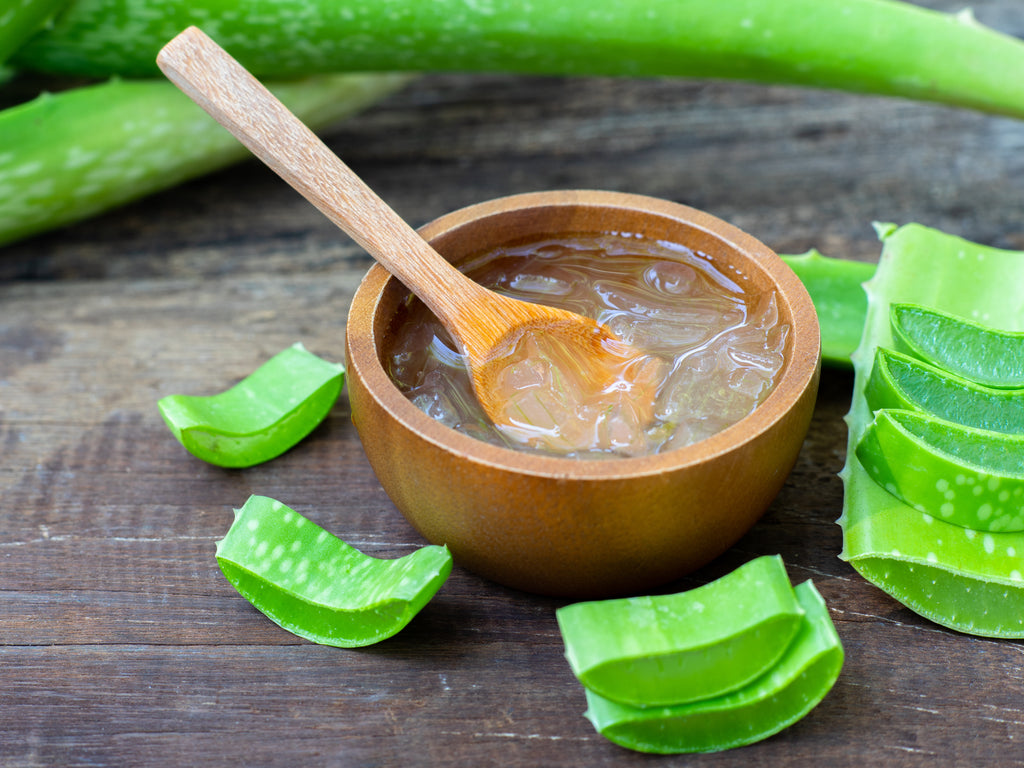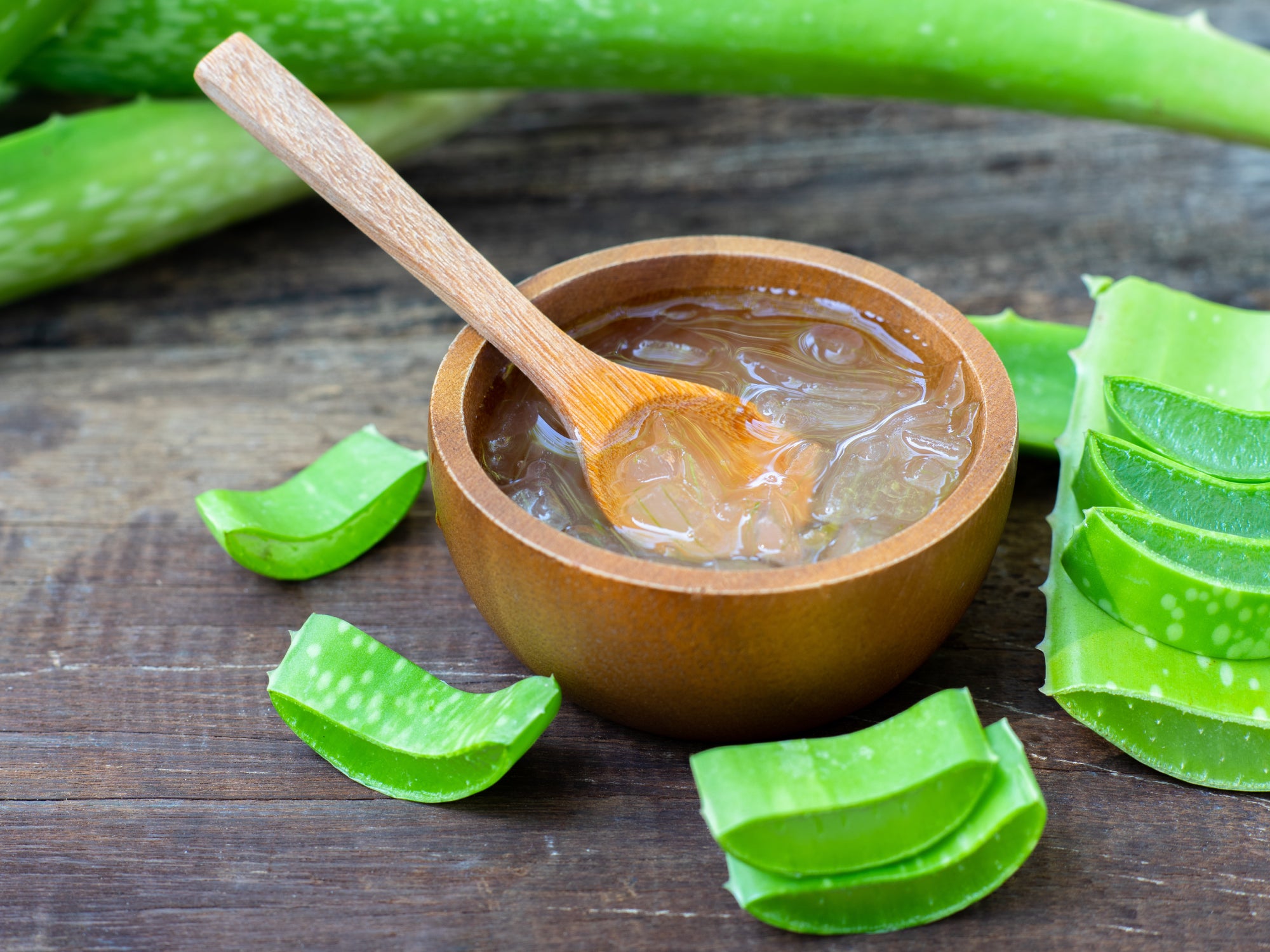
Post-inflammatory hyperpigmentation can be a difficult thing to shift, but could aloe vera do the trick?
Aloe vera has long been recognised as a bit of a miracle plant, with the gel from its strange fleshy leaves used to soothe inflammation, help heal burns, smooth scars, and soften dry skin. It’s full of the good stuff: vitamins, nutrients and some interesting substances called aloin and aloesin.
It’s these two compounds that scientists have suggested can help with post-inflammatory hyperpigmentation (PIH for short). Although research has not been extensive, there are encouraging signs that they can act to fade hyperpigmented areas left by inflammation and trauma to the skin (which includes eczema flares and acne).
Anecdotal evidence also suggests that aloe vera can help improve the appearance of skin discolouration or scars, but there isn’t as yet a standardised dose, or method of applying the aloe vera, so it is hard to know exactly how effective the gel will be.
Results will almost certainly depend on other factors, as well: how long you’ve had the PIH; how severe the pigmentation is; what your natural skin tone is (PIH tends to affect people of colour more dramatically than pale skinned people).
One way of using aloe vera is to apply some fresh aloe vera gel directly from a plant to your skin; that’s certainly the most natural way of doing it! Be aware that not everyone tolerates aloe vera, so patch test first.
Or you can use skincare products that contain aloe vera (like Balmonds Cooling Cream!) and apply them every day for at least the time it takes your skin to go through a whole regeneration cycle (3-4 weeks).
It’s worth knowing that there are several other natural ingredients that also seem to act to even out skin tone; particularly good at supporting the skin’s cycle of regeneration are rosehip, borage, sea buckthorn oil and shea butter.
Recommended products for skin affected by hyperpigmentation:
Balmonds Cooling Cream with aloe vera, lavender & menthol ( £19 for 100ml)
Balmonds Intensive Hand Cream with shea, hemp, calendula & sea buckthorn (from £10.99 for 50ml)
Balmonds Rosehip Scar Oil with rosehip, lavender & chamomile (£18.99 for 50ml)
